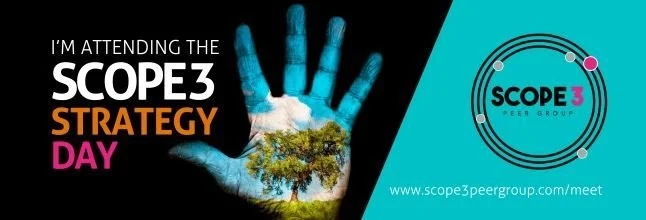Should buyers do business with Frank Hester? And how does his firm make such huge margins?
Business Purpose Means More Than Statements on Websites
Russia's Invasion of Ukraine Poses Major Ethical Questions for Businesses
Being Ethical is Tough
The ethical issues we all face sometimes seem impossibly complex. As we get more into the purposeful business agenda, with procurement at the forefront of many of the key decisions, matters get more and more difficult. In summary, being ethical - for individuals, corporations, governments and even chaitieis - is tough.
For instance, are there some firms in some sectors that we should consider corporate pariahs? Extinction Rebellion (ER) would no doubt put large swathes of industry into that category, including any firm involved in mining, petrochemicals, oil and gas… even if their founder still drives a diesel car. And I should say that no-one is perfect, so I don’t believe that fact disqualifies here from taking the stance she does. (I do feel that closing down chunks of London does ER no favours at all though).
Personally, I have a growing problem with gambling firms. The way the industry seems to have taken over sport is worrying, and reports which highlight that the poorest communities are most targeted emphasise the social damage gambling can do. Recent research showed that the UK’s most deprived areas have more than 10 times the number of betting shops compared to the most affluent parts of the country.
I find the constant barrage of adverts suggesting I gamble along to televised football matches sickening. Do those firms now cause more harm to society than cigarette manufacturers? But then, what about alcohol – think of not only the health issues but the violence and mental health issues generated indirectly by over-indulgence. Then there is chocolate. My first job post university was with Mars. Maybe we were not as damaging as fags or betting, but some would argue confectionery is not necessarily a positive contributor to a better world. (I would disagree of course!)
My personal feeling is that I would not work for a cigarette company or a gambling outfit. But I probably would work for Sky – yet they are facilitating gambling with their constant adverts, so my position there is probably illogical. And what about property firms that let out their shops to Paddy Power and others? I would work for a firm in oil, gas or mining, as long as I was sure they were “doing the right thing” in terms of future net zero plans, human rights and so on. I’d also have issues with the ethics around certain clients of law, banking or consulting firm, although I guess once you are in it is hard to pick and choose who you work with or represent!
Similar issues even apply to organisations such as CIPS (the Chartered Institute of Procurement and Supply) and other professional bodies. This has started to worry me recently - should CIPS work not just with firms that might not seem to be very “purposeful”, but also with governments that are repressive, totalitarian, imprison homosexuals or even practice stoning and crucifixion? I’m not sure CIPS should, but where do you draw the line?
I’m not offering easy answers here, but as many individuals and organisations look to follow a more purposeful life, there are going to be difficult debates ahead. And the decisions we make when we choose and work with our suppliers will also at times expose the same dilemmas.







